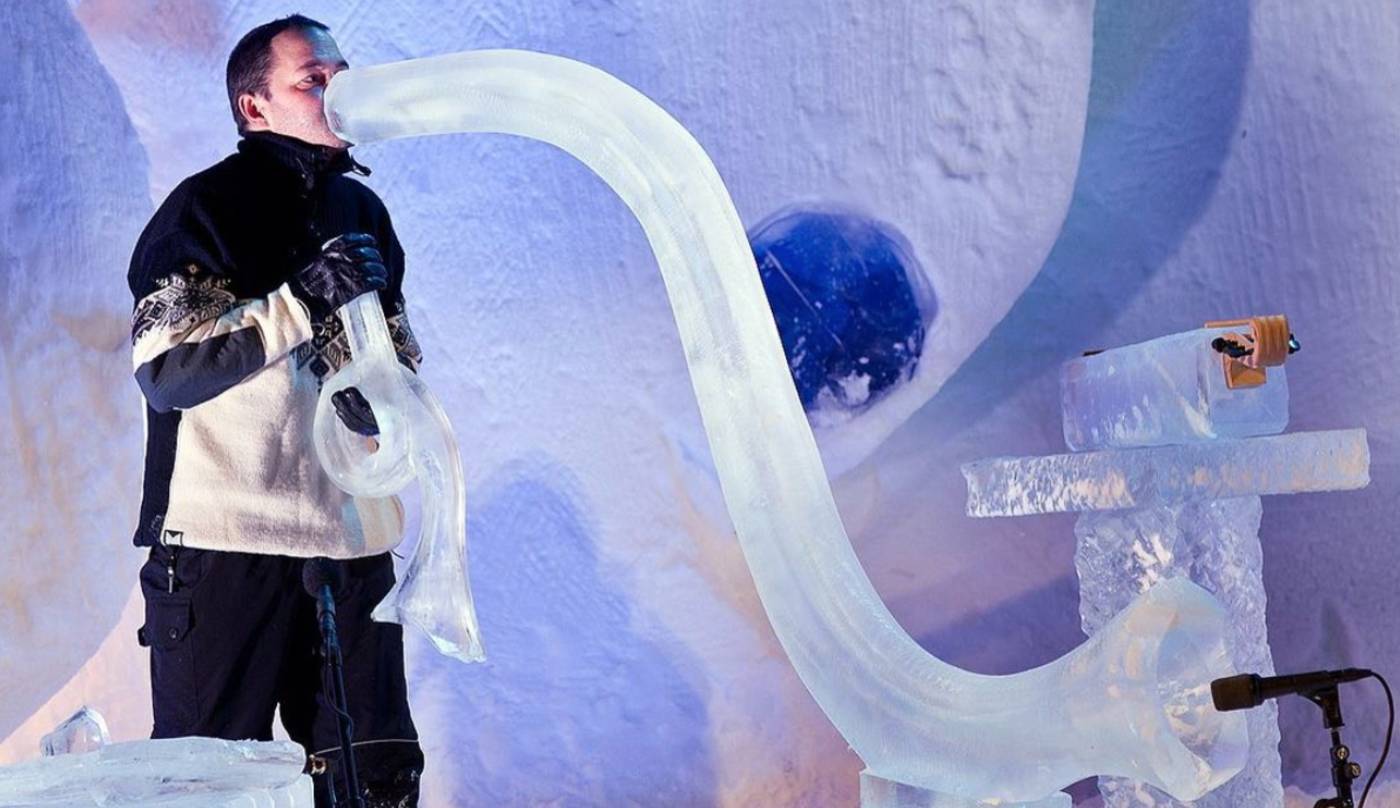From rare wood, to dried intestines, to horse hair dusted with crystalized pine sap, human beings will make instruments out of practically everything.
But who would ever imagine that, acoustically speaking, an entire orchestra of equipment could be formed out of ice?
As it turns out, ice instruments have a very good, and very unique sound to them, one that Tim Linhart, an American ice sculptor-turned-instrument maker describes as having the “purity and clarity of the heavenly realm.”
“There’s so much potential in ice as an acoustic material,” says Linhart in a YouTube mini-doc from Great Big Story. Linhart has learned, through trial and error, how to carve a complete orchestra from nothing other than frozen water, including violin, viola, cello, double bass, mandolin, guitar, banjo, xylophone, drums, and marimba.
“I decided [for] one of my sculptures I’d like to build a giant violin,” explains Linhart. “And I had a friend who was building guitars and he just asked the question, ‘yeah I wonder how that one’s going to sound?'”
“And that question has swallowed much of the rest of my life,” said Linhart.
Linhart, who also carves ice concert halls—a cross between a giant igloo and a tiny amphitheater, founded Ice Music, a touring ice concert performance group based out of Sweden and Italy.
A sample of their music on SoundCloud features a rendition of the Minor Swing by Django Reinhardt, wherein the difference in sound between ice and wood instruments can be heard perfectly.
A global phenomenon
Linhart is certainly a pioneer, having built 19 ice orchestras and 11 igloo concert halls. But he is not alone in this most extreme form of music.
In 2000, the world’s first ice-music concert took place under a frozen waterfall in Lillehammer, Norway. The composer and conductor, Terje Isungset, is still one of the world’s premier ice-music producers.
Having conducted hundreds of concerts worldwide, Isungset performed at the 2017 Nobel Prize Gala dinner, which featured renowned traditional Swedish vocalist Lena Willemark, and which began with a 10-second blast from an carved-ice horn.
“When I first started playing on clear ice, I found its pure sound surprisingly warm and gentle compared to the sound of crushed ice beneath your feet, which is a very cold sound,” Isungset told National Geographic.
MORE: Giant Xylophone in a Japanese Forest Uses Gravity to Play the Most Ethereal Bach Music
Insungset also started the annual Ice Music Festival, held every year in Norway for those willing to withstand the freezing temperatures needed to ensure the instruments keep their shape throughout the concert.
Problems like hot hands and lips warming the instruments mean that the strings section gradually alters their pitch throughout the concert, but a colder environment can help prevent these material issues.
They present other challenges, however, as musicians’ normally-nimble fingers slow down from the numbing cold, and horn players’ lips stick to their instruments like the kids in a Christmas Story.
RELATED: Chill Out Watching These Reindeer Contemplating the Northern Lights…
While the pandemic has prevented any ice concerts from happening recently, the Ice Music Festival is on track for a 2022 return, and after Milan was awarded the 2026 Winter Olympic games, Linhart immediately began drafting proposals for an ice concert as part of the opening ceremony.
(WATCH the igloo orchestra in action below.)
Featured image: Bjørn Furuseth for @IceMusicFestivalNorway/Instagram
SHARE the Icy Sounds With Your Friends Who’d Love to Hear It…




















